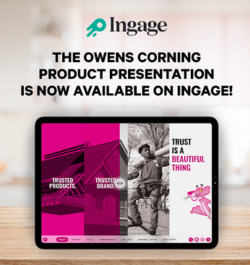Investigating Terminology Standards for the Roofing Industry

By Jobba.
Discussing the terminology of the roofing industry was a focus at the recent Roofing Technology Think Tank Meetup.
The Roofing Technology Think Tank (RT3) was hosted by Jobba Trade Technologies in the fall of 2022. RT3 is an industry association whose members are forward-thinking leaders who embrace technology as a means through which to maximize the professionalism and appeal of the roofing trade while promoting the adoption of technologies into the industry.
While gathered at Jobba’s headquarters, the members continued the discussion started last spring at Texas A&M about how our software applications struggle to talk to one another simply because we do not adhere to standardized terminology within our industry.
By asking questions and participating in interactive group activities, the attendees examined the problem and identified the challenges facing the effort to standardize the industry. These were the questions asked:
How did we get here?
RT3 members kicked off the meeting by answering this question: how did we get here? The roofing industry has experienced a technology revolution, trading in their paper and manual business for 20-plus applications and manually pushing and pulling data from each application – equally as inefficient. Contractors are requesting that software needs to “talk to each other,” but when starting to figure out how to do that, a greater issue surfaced — the lack of standardized language in the industry.
Technology companies use API (Application Programming Interface) to address the translation issue by standardizing data sets and file formats. APIs have the ability to translate content and form but not meaning. For example, one contractor’s “estimate” is another contractor’s “proposal,” and architectural terms vary by region. Technology cannot solve the problem. Applications can only work with the terms and instructions given to them. The industry lacks a common language and standardization.
What is standardization?
RT3 members split up into groups to work on defining and applying standardization to the roofing industry. The definition of standardization is: “to bring conformity to ensure consistency and regularity.” One highlight of this group activity was learning that standardizing will affect more than just contractors in the industry. Distributors, manufacturers, and technology providers need to be involved in this discussion to truly create a cohesive solution.
Another highlight of this group collaboration was the realization that previously, a disaster or catalyst happened to ignite change. Members questioned if a catalyst is necessary to ignite the industry to mature or if there is another way to get the ball rolling. For example, COVID was a catalyst for getting the roofing industry to start to modernize and use technology more.
What are the current standardization efforts in the roofing industry?
McKay Daniels, Chief Executive Officer of the National Roofing Contractors Association, presented on the NRCA’s current standardization efforts. Currently, the NRCA offers standardized manuals, education, and glossaries. Although the NRCA provides these resources, they are looking for others to take the lead in standardizing the industry with their support.
John Kenney, Chief Executive Officer of Cotney Consulting Group, also spoke on the roofing industry’s standardization efforts, but with a European focus. John is a partner member of the International Federation of the Roofing Trade (IFD). Headquartered in Germany, the IFD promotes the next generation of roofing professionals, specifically with vocational training and further education. It is also involved in creating technical standards. It is a governing body for roofing practices.
Role-related perspectives
One group activity that was interesting and beneficial to the roofing industry’s standardization efforts was when members were grouped by contractors, technology, consultants, and manufacturers/distributors to discuss benefits and challenges for standardization by role/function. Below are a few key advantages and challenges discussed:
Advantages:
-
Standardization can elevate the industry through automation, scalability, and transparency.
-
Standardization can aid in the effort to streamline communications and increase comprehension.
-
Standardization can help reduce errors, resulting in an increase in accuracy and efficiency.
Challenges
-
Mindsets and psychology need to change. There must be a shift away from believing that “doing it the way it has always been done is the best way.”
-
There is no teachable standardization format because there are no government regulations or application process changes.
-
The roofing industry does not have the same role or job position definition standards as other trade industries.
Next steps and takeaways
The thought leaders of RT3 were able to make a lot of progress toward the roofing industry’s standardization efforts. Through collaboration, the next steps and goals were created. In the final activity, members participated in what was “I learned, I wonder, I wish” session.
Members had three different sticky notes to write down what they learned, wondered, and wished. These are a few common themes:
I learned
-
“There are a lot of passionate people in the roofing industry wanting to challenge the status quo.”
-
“We are all wanting the same thing, a common platform.”
I wonder
-
“How can we work within our lanes to achieve common ground?”
-
“Can we find the answer? Will all involved follow and approve?”
I wish
-
“There was an industry agreement on a glossary of terms.”
-
“There is a nationally recognized certification.”
Jobba Trade Technologies was thrilled to have had the opportunity to host and facilitate discussions with these incredible thought leaders of the roofing industry. Jobba continuously works to not only improve its software to streamline contractors’ workflows but to improve the roofing industry overall.
Learn more about Jobba Trade Technologies in their RoofersCoffeeShop® Directory or visit jobba.com.
Original article source: Jobba






















Comments
Leave a Reply
Have an account? Login to leave a comment!
Sign In